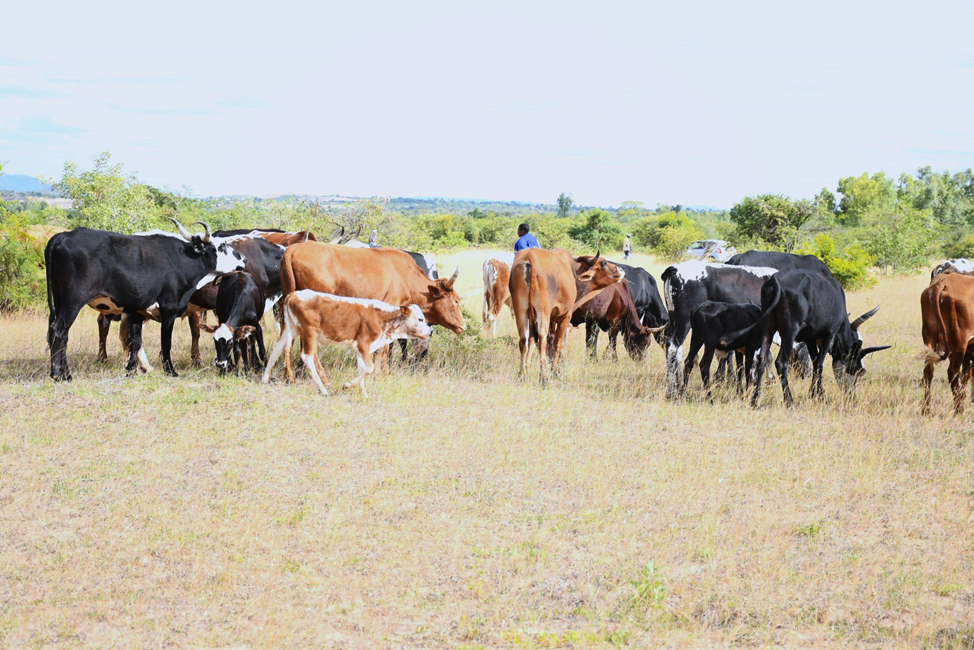
Mary Mutorwa (69), a smallholder farmer from Ward 5 in Shurugwi under Chief Banga, has found a new purpose and strength in farming through her partnership with the Njeremoto Biodiversity Institute (NBI), a PELUM Zimbabwe member organisation. Since joining NBI in 2013, Mary has transformed her farming practices from being input-heavy and wasteful to a more sustainable, integrated system that blends livestock and crop production.
Before joining NBI, Mary relied heavily on external inputs, but her approach to farming has since changed dramatically. She is now more established in livestock production and grows crops like groundnuts and finger millet (rukweza), all while practising Holistic Land and Livestock Management (HLLM), a method that has deeply impacted both her farm and her community.
“Before I started working with NBI, we did not have good relationships with one another in our community. However, since we started working together on the HLLM Programme, our community has benefited exponentially due to the fact that all the cattle in our community are herded all at once by herders carefully selected by the herding committee. Most community members take part in this initiative and there is a sense of shared responsibility. This has built strong bonds and we now work together as one family,” she shares.
Mary has seen firsthand how HLLM is not only restoring the land but also rebuilding social cohesion.
“As farmers, we are happy that our community is also benefiting from HLLM. Because of collective herding practices, livestock diseases have been on a sharp decline, there has been increased biodiversity and generally our environment is improving,” she explains.
One powerful example of this new sense of cooperation is how the women in Mary’s community have adopted the nhimbe concept. Working together, they rotate labor on each other’s farms, sharing both the burden and the rewards.
“We take turns working in each other’s fields as members of the HLLM group. This has unified our community. We share not just labour, but also our experiences and knowledge. This empowerment uplifts our families and strengthens our collective voice within the community. We are now celebrating resilience and commitment to sustainable farming practices,” says Mary.
Josaya Mutizira (60), a field officer with NBI, says this transformation is exactly what the HLLM programme aims to achieve – which is to strengthen both the environment and community bonds.
“When people start working together, they form groups, showing that they have become united. Community members now share experiences, which has created functional connections among them. They work together in groups, supporting herders with disease management and resource conservation, which has further strengthened their social bonds.” he says.
Kezinet Mhlanga (42), an Agricultural Business Advisory officer working with Mary’s community, points out that HLLM is also contributing to national efforts to support smallholder agriculture.
“The HLLM programme is playing a big role in supporting government initiatives for smallholder agricultural development. When farmers collaborate to share knowledge and resources, they not only enhance their agricultural practices but also align with the government’s goals for sustainable development and this program encourages farmers to adopt best practices, which leads to improved yields and resource management,” she explains.
For Mary and her neighbours, HLLM has become more than just a farming method. It’s now a powerful tool for building unity, resilience, and sustainable livelihoods. Whether facing livestock diseases or climate shocks, this community is no longer struggling alone. They’re thriving together, bound by shared purpose and strengthened by collective action.







